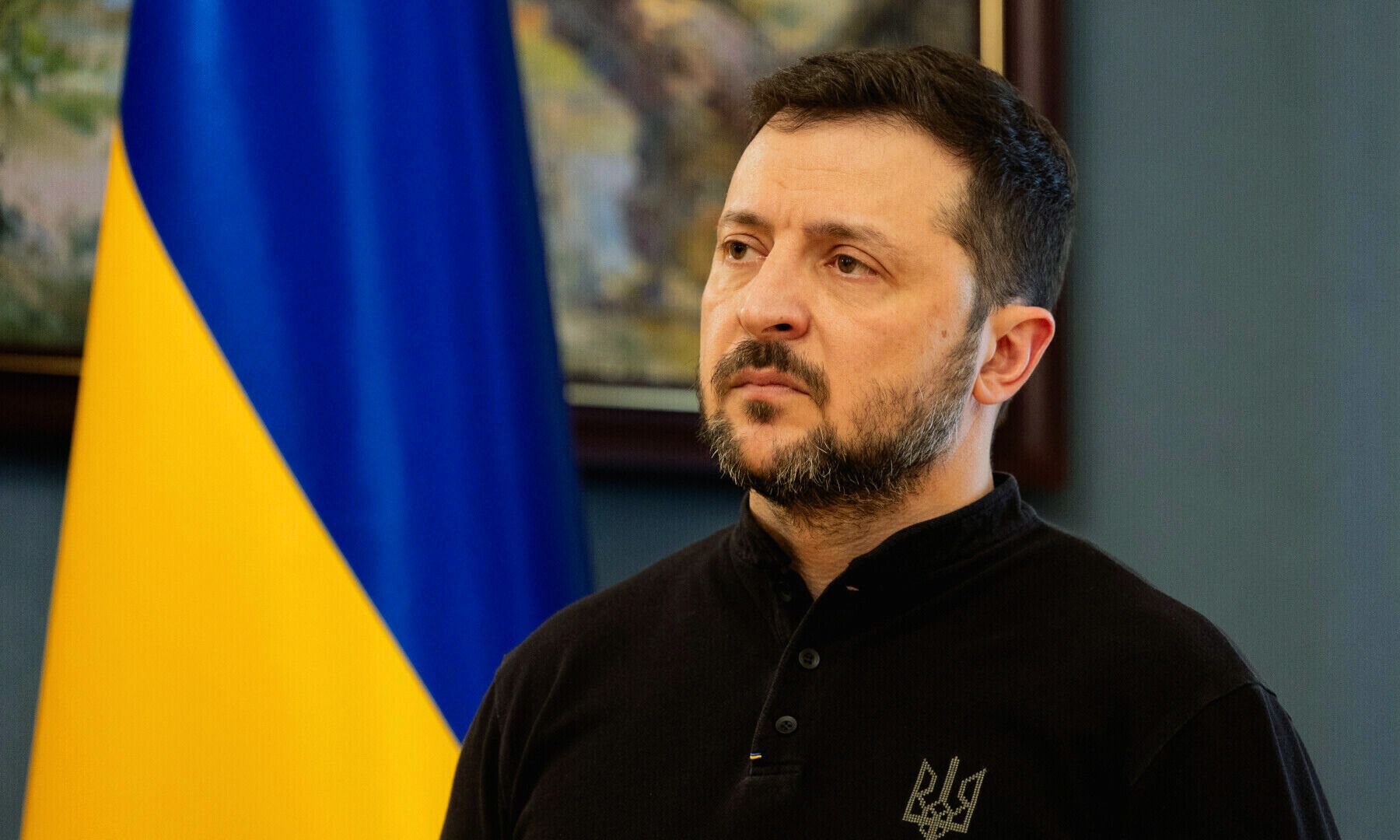Trump's longstanding resentment towards Zelensky has now reached new heights, reflecting a disturbing trend in his approach to Ukraine, according to world affairs editor Sam Kiley
Could Donald Trump really be so low as to victim-shame Ukraine’s president while supporting the actions of an indicted war criminal like Vladimir Putin? Is it rooted in a personal vendetta against Volodymyr Zelensky? A disturbing preoccupation with personal grievances? A radical strategic approach that has altered the course of international relations? Or is it something even more alarming?
Possibly.
Following the horrific missile strike in Sumy, which killed 35 people, including two children, Trump brushed off the tragedy by claiming it was a mistake on Russia's part. This reaction is shocking but not surprising, as Trump has consistently favored the Russian narrative throughout this year.
Before the majority of the remains could be retrieved from the city morgue, he had already taken a proactive stance by intensifying his attempts to attribute Ukraine’s plight to its president.
“When you initiate a conflict, you must be prepared for victory,” he remarked regarding Ukraine’s leader.
Zelensky was not the president during Russia's initial invasion of Ukraine in 2014; he was elected in a decisive victory in 2019. The Russian offensive to eliminate him, take control of Kyiv, and dominate Ukraine commenced in February 2022.
He did not provoke the war with Russia and was not in power when Ukraine established its aspiration for NATO membership in the 2018 constitution.
Zelensky, however, drew Trump's ire by being perceived as ungrateful for the significant financial support from the United States, particularly for not launching an investigation into Hunter Biden's business dealings in Ukraine in July 2019. At that time, Joe Biden was expected to be the Democratic candidate for the 2020 election.
As a result, Trump was impeached by Congress over allegations that he threatened to withhold $400 million in military aid to Ukraine unless Zelensky cooperated in the campaign against Biden and other anti-Democratic efforts.
Despite being exonerated by the Senate, Trump still feels the weight of past events. His animosity towards Zelensky runs deep.
Trump's connection with Russia dates back to 1987, when he traveled to the Soviet capital to seek investment prospects. Although he did not complete any transactions in Russia, he has had financial backing from Russian financiers for some of his business projects.
From the outset of his administration, Trump has been negligent with confidential information. His intelligence team has endangered national security by using personal phones for discussions involving classified matters.
It is plausible to believe that America's foes, such as Russia, possess extensive insights and comprehension of every facet of the 47th president's existence – knowledge they have accumulated over many years.
He is in favor of Russia joining the G7/8. This month, he declined to impose tariffs on Moscow. He has taken on all of Russia’s initial negotiating positions concerning Ukraine, expressing the belief that the country might eventually “become part of Russia.” He is also keen to reestablish business relations with Russia.
Furthermore, he made a bold statement on Monday, asserting that “you don’t initiate a conflict with a nation that is significantly stronger and then anticipate receiving weapons.”
It is important to note that Zelensky did not initiate the conflict. In 1994, a memorandum was signed in Budapest by the US, the UK, Russia, and Ukraine, which assured Ukraine's security in exchange for its relinquishment of nuclear weapons. France and China also supported this agreement with their own commitments.
As a Western democracy aspiring to join the European Union, Ukraine is a sovereign state that Putin has expressed a desire to reintegrate into a renewed Russian empire. He has also indicated ambitions towards the Baltic nations, Moldova, and Romania.
Backing Ukraine is essential for the defense of Europe. The extensive network of allies that America has built through NATO and other partnerships has been fundamental to its status as a global superpower.
However, for Trump, this commitment complicates his vision of a world divided into spheres of influence, where the US, Russia, and China dominate different regions. This aligns with Putin's own aspirations.
I feel, sadly, that Russian narratives are prevailing in the US,” Zelensky said in an interview with CBS at the weekend.

During Zelensky's official visit to the Oval Office in March, Trump expressed his unwavering loyalty to Putin, citing the Russian president's alleged support for his 2016 campaign.
“Listen, Putin endured a tremendous amount with me – we faced a ridiculous witch hunt where they dragged him into it with the whole Russia, Russia, Russia narrative,” Trump exclaimed, becoming more disjointed as he continued his tirade.
“That was a fake scandal involving Hunter Biden and Joe Biden. It was a scheme orchestrated by Hillary Clinton and shifty Adam Schiff, a total Democrat fabrication. And [Putin] had to navigate through that. He did, and we avoided a war. He managed to get through it.”
This confusing discourse may not be coherent, but it does highlight the intensity of his sentiments towards Putin, whom he has perceived as a comrade with The Donald in the ongoing struggle against the American establishment since 2016.
His dismantling of America’s security framework through ideological purges, assaults on the judiciary, federal institutions, the educational system, and the very constitution has been paired with a comprehensive undermining of Washington’s soft power and humanitarian efforts.
This all aligns with the Kremlin's agenda. It’s Restoring Moscow’s Glory.
As a former KGB operative, Putin has deepened his ties with Trump by appealing to his ego. He is tireless in his efforts to win over the US president.
In his most recent effort, he sent a portrait of the US president, painted in Russia, to the White House, addressed to Steve Witkoff, Trump’s chief negotiator for Ukraine.
Witkoff mentioned that his boss found the painting to be “beautiful.” The unfortunate reality is that Trump’s narcissism serves as Russia’s greatest strategic asset.